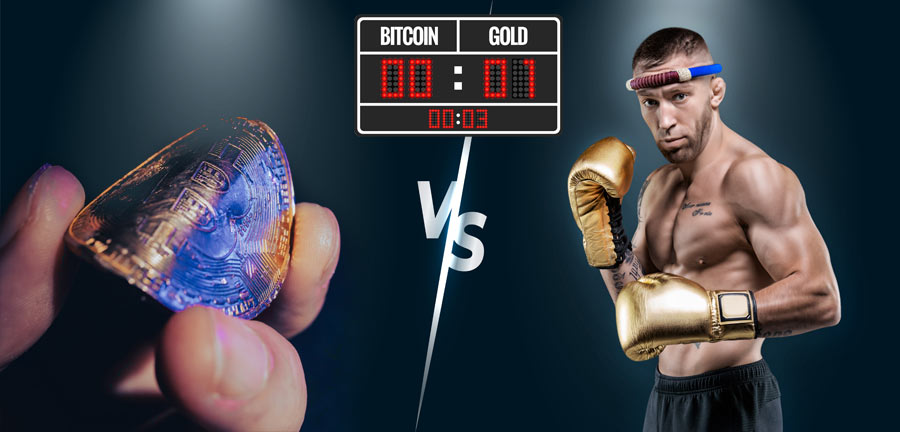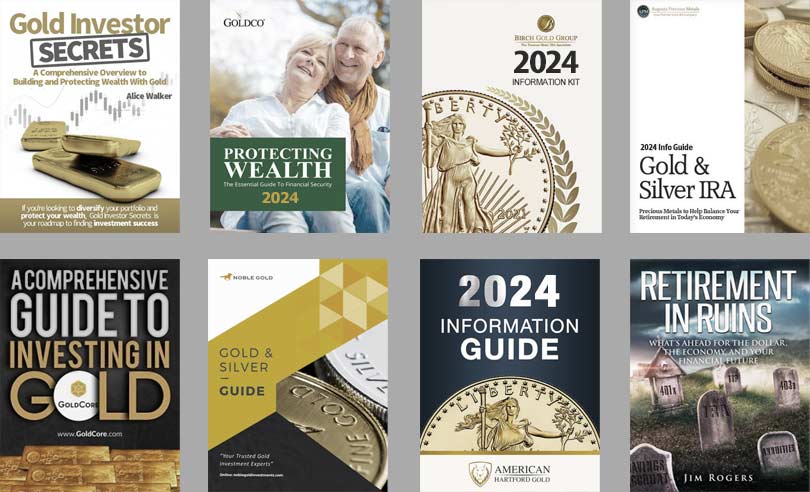
“Question: My husband and I were looking to add some to our portfolio but some friends said to forget gold and buy Bitcoin as it’s the ‘New’ gold, adding there’s much more potential for profit. Are they right? Is Bitcoin a natural successor to gold?”
 Bullion.Directory’s Ask Ally Service
Bullion.Directory’s Ask Ally Service
By Alison Macdonald
Commercial Editor at Bullion.Directory
Jean in Colorado is echoing a question I get asked a lot, which is not surprising given that a lot of the mainstream media enjoys likening Bitcoin to gold. Unfortunately the promotion of this concept is part lazy reporting and part a lack of understanding of both precious metals and cryptocurrencies.
Now my gut reaction was to answer ‘no’ with some thinly veiled contempt – but it’s an important question with some equally important answers.
So I’ve set up my Enya playlist on iTunes, and taken a few deep contemplative breaths.
And now I’m chill enough to answer.
Jean is of course referring to an ongoing debate in both financial and mainstream media, pitting the traditional stalwart of investment, gold, against the digital upstart, Bitcoin.
(We’ve covered it ourselves in the past here, here and here.)
This discussion gained significant momentum as Bitcoin’s popularity and market value surged, leading many many people who should know better to claim it to be the ‘new gold’ of the digital age.
And as more people thought this could indeed be the case, less new investors bought gold and more bought Bitcoin. Gold was old fashioned, Bitcoin modern and exciting.
But this comparison warrants a closer and far more critical examination.
Gold vs Bitcoin: Who’s Who and What’s What?

Gold, with its millennia-long history as a store of value and a symbol of wealth, stands on one side of this debate.
Its physical tangibility, intrinsic value, sheer beauty and a proven historical stability in times of economic turmoil have cemented its position as a cornerstone of traditional investment portfolios – a position it has held since money first became a ‘thing’.
On the other side is Bitcoin, a decentralized digital currency born out of the 21st century’s technological revolution.
It represents a new frontier in finance, characterized by rapid growth, digital convenience, and a promise of democratizing the financial landscape.
While gold is solid, heavy and physical, Bitcoin is pure math – existing solely as zeros and ones in the air.
So at first glance the two could not be more different. One a real asset, one with no form other than digital code.
Is the old ready to move over for the new?
Historical Context of Gold as a Value Store
Us apes have a deep connection with gold. It’s role as a store of value is deeply rooted in history, stretching back thousands of years.
Cultures across the world have long recognized gold for its enduring worth, using it as currency, a symbol of wealth, and a tool for trade. I think this universal acceptance cements gold’s position permanently into both the global economy and individual investment portfolios.
Gold’s attributes of course contribute significantly to its legendary status:
- Tangibility: Unlike digital assets, gold is a physical entity. Its tangibility adds a sense of security and permanence, qualities that digital currencies simply can’t replicate.
- Intrinsic Value: Gold possesses inherent value due to its rarity, beauty, and utility in a range of applications, from coinage to jewelry to technology. This intrinsic value and a deep emotional value both underpin its appeal as an investment and a wealth reserve.
- Historical Stability: Unlike newer asset classes, gold has a proven track record of maintaining its value over centuries. It has witnessed the rise and fall of empires, currencies and economic systems, yet has remained a consistent store of wealth, even in times of turmoil. Not for nothing gold is considered an insurance policy against risk.
This historical context helps us understand gold’s unparalleled position as a reliable store of value, against which nearly all other assets are compared.
The Rise of Bitcoin
 Many say Bitcoin’s emergence as a digital asset has been nothing short of revolutionary, marking a significant milestone in the evolution of financial systems. On the flip side there are those who say it’s evolved from admittedly promising roots – to become little more than a ponzi scheme.
Many say Bitcoin’s emergence as a digital asset has been nothing short of revolutionary, marking a significant milestone in the evolution of financial systems. On the flip side there are those who say it’s evolved from admittedly promising roots – to become little more than a ponzi scheme.
Its inception in 2009 opened the doors to a new era of digital currencies, promising a decentralized alternative to traditional banking and government-issued currencies.
Now this WAS and IS a role traditionally held by gold. If Bitcoin truly lived up to it’s promise it really would have been a useful parallel investment to gold. But did it?
Bitcoin started as a radical idea proposed in a whitepaper by an individual (or group) under the pseudonym Satoshi Nakamoto. From its humble beginnings, it has grown into a widely recognized digital asset, capturing the attention of investors, technologists, and the general public alike.
One of Bitcoin’s most significant appeals is its digital nature. Transactions can occur across borders, without the need for traditional banking systems, offering a level of convenience that physical assets like gold cannot easily match.
Bitcoin operates on a decentralized network, a feature that resonated from the very beginning with those who advocate for less government control over currencies and financial transactions. Fast forward to current day, existing and pending legislation, governmental overwatch, overreach and the throttling of exit points to cash – and bitcoin is anything but it’s initial dream.
Enter Speculation: Bitcoin’s High Returns
 Bitcoin has seen dramatic price increases over the years, earning a reputation for life-changing high potential returns and bringing speculators into the market.
Bitcoin has seen dramatic price increases over the years, earning a reputation for life-changing high potential returns and bringing speculators into the market.
Early adopters, who, like myself, purchased Bitcoin in it’s early days have seen substantial returns on their investment. For those of us lucky to have entered the market in double and triple figures we’ve seen returns that nothing else could reproduce without incredible luck – certainly not consistently or long-term.
Others who entered later, still saw excellent returns, but there are millions who have also lost money on bitcoin and many who’ve lost their entire pot thanks to the fraud that would appear to go hand-in-hand with the crypto world.
While I am certainly not against Bitcoin or averse to technological advancements in finance – my early investment in Bitcoin is a testament to that – it’s crucial to approach it with a clear understanding of its nature and market behavior, especially when comparing it to an established store of value like gold.
Volatility and Stability: Bitcoin vs. Gold
The contrast between Bitcoin and gold is perhaps most starkly observed in their respective levels of volatility and stability.
Bitcoin, since its inception, has been characterized by sharp price fluctuations.
Its value can swing dramatically within short periods, driven by factors such as market sentiment, the actions of ‘whales,’ regulatory news, technological advancements, and speculative trading. These rapid changes can result in significant gains but also pose considerable risks for investors.
Moves to turn Bitcoin into leveraged derivatives will bring both profit and horrific destitution.
In contrast, gold has demonstrated remarkable stability over time. While it is not immune to short-scale price fluctuations and volatility, these changes tend to be more gradual and less dramatic compared to Bitcoin.
Gold’s value is underpinned by its physical properties, demand in various industries, and its status as a hedge against inflation and currency devaluation. It’s not for nothing that central banks own thousands of tonnes of gold – to bring stability to their fiat currencies. Nations who have experimented with using cryptocurrencies as a central bank asset have not fared so well…
Gold’s stability is influenced by its tangible nature, finite supply, and diverse utility in jewelry, technology, and as a reserve by central banks.
Bitcoin’s volatility, on the other hand, is often fueled by investor speculation, varying degrees of adoption, and evolving regulatory landscapes.
This comparison between Bitcoin’s volatility and gold’s stability is critical for investors to understand.
While Bitcoin offers the potential for high returns, it comes with significant risks and uncertainties along with potential for catastrophic losses. Gold, with its historical steadiness, provides a sense of security, making it a reliable component in a well-diversified investment portfolio.
Regulatory Landscape and Security
 The regulatory landscape for Bitcoin and gold is markedly different, reflecting their distinct natures and the challenges they pose in terms of security and oversight.
The regulatory landscape for Bitcoin and gold is markedly different, reflecting their distinct natures and the challenges they pose in terms of security and oversight.
Gold is long-established and laws move far more slowly than technology – nowhere is this more evident as in the global Wild-West that is cryptocurrency.
Gold has a well-established regulatory framework. It’s recognized and regulated as a commodity by entities like the Commodity Futures Trading Commission (CFTC) and other financial authorities globally. The regulatory environment for gold is stable, with clear guidelines for trading, storage, and taxation.
In contrast, Bitcoin, and cryptocurrencies in general, exist in a more uncertain regulatory space.
Different countries have varied stances on Bitcoin, ranging from full acceptance to outright bans. Regulations are still evolving, leading to a degree of uncertainty for investors and users.
Security Concerns
Bitcoin: The digital nature of Bitcoin brings unique security challenges. Risks of hacking and digital theft are significant concerns.
The collapse of platforms like FTX highlights the vulnerabilities in the cryptocurrency infrastructure. These incidents underscore the risks associated with digital asset security and the need for stringent cybersecurity measures.
Gold: For gold, security considerations are more about physical protection. Safeguarding gold involves secure storage solutions, like depository vaults and safety deposit boxes. The risk of theft or loss is tangible but can be effectively mitigated with proper physical security measures.
A thick concrete vault wall and toughened steel door is easy to understand.
A hacked digital wallet, or digital exchange run by greedy college kids in an offshore jurisdiction is far harder to safeguard.
This divergence in regulatory frameworks and security issues is a critical aspect of the gold versus Bitcoin debate.
While gold operates within a well-understood and stable regulatory regime, Bitcoin navigates a more complex and evolving landscape, accompanied by distinct digital security challenges.
Bitcoin’s Longevity and Adoption Issues vs Gold
Bitcoin’s journey in the financial world, while impressive, is relatively short, especially when compared to gold’s storied history.
This difference in longevity has implications for their respective adoption and acceptance in the broader financial landscape. New isn’t necessarily bad, but being old and established holds real weight.
Bitcoin’s Short History
- Introduced in 2009, Bitcoin is a newcomer in the world of finance. Its decade-plus existence pales in comparison to gold’s millennia-long history.
- Bitcoin’s short history is marked by rapid growth but also significant volatility, regulatory challenges, and security concerns. These factors have contributed to a cautious approach from some investors and regulatory bodies.
Issues Around Financial Adoption
- Bitcoin’s adoption has been growing, but it still faces hurdles in achieving widespread acceptance, especially as a mainstream investment vehicle or a stable store of value.
- Concerns about its volatility, regulatory uncertainties, and security issues have made some traditional financial institutions hesitant to fully embrace Bitcoin.
- The decentralized and digital nature of Bitcoin, while innovative, poses challenges in integration with the existing financial infrastructure.
Contrast with Gold
- Gold has been universally accepted and valued for centuries. Its role as a store of value, an investment asset, and even a currency is well-established and globally recognized.
- Gold’s long history has allowed it to integrate seamlessly into various economic systems, enjoying widespread trust and confidence among investors, governments, and financial institutions. It’s not complex. There’s nothing to understand, nothing to break.
- The stability and historical reliability of gold make it a preferred choice for risk-averse investors and those looking for a safe haven asset, or something solid inside their retirement accounts.
- Gold possesses intrinsic value due to its physical properties – it’s durable, malleable, and has a unique aesthetic appeal. These qualities have made it a valued material for jewelry and ornamentation throughout history.
- Beyond aesthetics, gold has practical applications in various industries. It’s a highly efficient conductor of electricity and is used in electronics, medical devices, and even aerospace technology. This industrial demand underpins gold’s intrinsic value.
- The finite supply of gold, requiring significant effort and resources to mine and refine, further adds to its intrinsic worth. This scarcity is a key component of gold’s sustained value over centuries.
- Bitcoin, as a digital asset, lacks physical properties and therefore does not have intrinsic value in the traditional sense. Its value is primarily driven by investor perception and demand, making it more susceptible to market sentiment. In theory it could drop to zero tomorrow, much as FTX did and countless companies and linked cryptocurrencies have in the past.
- Unlike gold, Bitcoin does not have ANY utility outside of being a digital currency and a speculative investment. Its value is not backed by physical attributes or practical applications in industries.
Intrinsic Value and Utility
The concept of intrinsic value is pivotal when comparing gold with Bitcoin, as it highlights fundamental differences in their nature and utility. It comes down to reality versus imagination.
Intrinsic Value of Gold
Lack of Intrinsic Value in Bitcoin
Gold’s intrinsic value and utility in a variety of industries position it uniquely compared to Bitcoin.
While Bitcoin has its strengths as a digital asset, it completely lacks tangible qualities and practical applications that underpin gold’s long-standing value.
Conclusion: Assessing the ‘New Gold’ Claim
 In assessing the claim of Bitcoin being the ‘new gold,’ it is clear that while both assets have their unique merits, they are fundamentally different in every area that counts: nature, value, and role in the financial world.
In assessing the claim of Bitcoin being the ‘new gold,’ it is clear that while both assets have their unique merits, they are fundamentally different in every area that counts: nature, value, and role in the financial world.
Bitcoin emerged as a groundbreaking digital asset, offering rapid growth potential and appealing to a generation of tech-savvy investors – but cryptocurrencies quickly became synonymous with scams, rug-pulls and pump-and-dumps. The law has not come close to catching up with what is needed to keep the crypto market safe.
Gold has a centuries-long history as a store of value, enjoying a universal acceptance and stability that Bitcoin has yet to achieve.
Gold’s role as a stable, reliable asset with tangible value and practical utility is unmatched by Bitcoin’s digital, speculative nature. Bitcoin represents a novel and potentially lucrative investment avenue, but it cannot replace or replicate the fundamental qualities that have established gold as a timeless, evergreen asset.
There’s only one gold.
Alison Macdonald

Ask Ally, is your direct line to gold investment wisdom. Alison “Ally” Macdonald, with her extensive experience and sharp tongue, cuts through clutter to offer honest, insider takes on your gold investment questions.
Need insights or industry secrets? Ally’s ready to deliver, combining professional expertise with a smattering of Glasgow patter. Get ready for straightforward, expert guidance from a one-time gold shill turned good guy. Ask Ally Today










 Material provided on the Bullion.Directory website is strictly for informational purposes only. The content is developed from sources believed to be providing accurate information. No information on this website is intended as investment, tax or legal advice and must not be relied upon as such. Please consult legal or tax professionals for specific information regarding your individual situation. Precious metals carry risk and investors requiring advice should always consult a properly qualified advisor. Bullion.Directory, it's staff or affiliates do not accept any liability for loss, damages, or loss of profit resulting from readers investment decisions.
Material provided on the Bullion.Directory website is strictly for informational purposes only. The content is developed from sources believed to be providing accurate information. No information on this website is intended as investment, tax or legal advice and must not be relied upon as such. Please consult legal or tax professionals for specific information regarding your individual situation. Precious metals carry risk and investors requiring advice should always consult a properly qualified advisor. Bullion.Directory, it's staff or affiliates do not accept any liability for loss, damages, or loss of profit resulting from readers investment decisions.

Leave a Reply